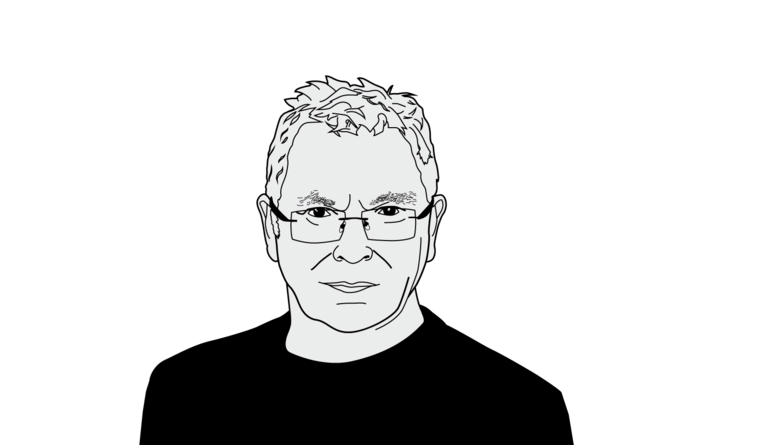Marc Elcardis is Professor Emeritus of Sociology at the Free University of Brussels (VUB). His contribution appears every two weeks.
Since the banking and financial crisis in 2008, disaster has been followed by disaster. The virus has not been defeated yet or there is war in Europe. Energy scarcity drives inflation.
Inflation is a heavy tax on the piggy bank. For people without savings, they quickly make the difference between mediocre luxury and real hardship. A picnic for pizza with the family, some nice things for the kids, a bunch of spring flowers that must be exchanged for life in the cold, save food and stay home because petrol is expensive. The green utopia is probably a nightmare for most people.
Inflation is hard to contain. Remarkably, many central bankers expected it to be fleeting – a bump in the road, no more. This is whistling in the dark, but understandable. Persistent inflation can only be controlled by a significant increase in interest rates, which usually leads to mass unemployment.
Currently, hardly anyone wants to encounter this ghost. We’ve seen enough horror already. Few experts predicted the outbreak of war in Europe. Significantly did a lot of “ordinary people”. A study conducted by the Clingendael Institute a few years ago revealed that 42% of the Dutch consider war in Europe to be possible; 30% fear nuclear war.
sovereignty
The bloody red and gloomy black horror we now see in Ukraine, perhaps no one expected. It makes our vulnerability unbearable, but it also makes us aware of that vulnerability. Escalation increases the risks of nuclear war. Escalation cannot be reduced. It remains with a supply of weapons sufficient to prolong the suffering, not put an end to it.
It hurts to realize that we are co-financing Putin’s war as long as we buy gas or oil from Russia. The European Union imports 45 percent of its gas from Russia. Stopping this completely is impossible in the short term. Partial replacement with another gas is expensive and economically troublesome. We now get energy from coal and shale gas, without protest from our absent climate students. Everything changes quickly.
The word “sovereignty”, until recently politically incorrect, is now on everyone’s lips. On the other hand, the word “globalization” has become a dirty word. It evokes the image of the consumer squandering his soul in exchange for a dose of cheap stuff.
The crisis of 2008, the COVID-19 epidemic and the war in Ukraine… It’s three battles against globalization and this battle lost the war. Covid-19 has made it clear that whoever does not have an industry is a weak country. The war in Ukraine confirms that the same applies to countries that cannot generate their own energy.
Europe is weak, but now, along with the large member states, it is becoming aware of this. There are new challenges on the agenda: re-industrialization, independence for strategic commodities, and energy and food self-sufficiency.
famine
However, Europe seems unable to find a voice of its own and remains a plaything of forces beyond its control, torn between imperial ambitions. We can’t live without America, but isn’t America needlessly sacrificing Ukrainian lives to teach Russia a lesson and suspend China (“Don’t try in Taiwan what Putin tried in Ukraine!”)? Doesn’t America primarily serve the interests of its corporations, which now sell us very expensive and polluting shale gas?

Putin’s behavior seems so unreasonable that many commentators call him insane. This is a stupid way to deal with an opponent, but in this case it is almost irresistible.
Will Putin escalate to brutality to provoke more sanctions and/or population flight, or is this horror just part of the war? Do we all carry that monster inside us? Is there still a Putin strategy that we can reasonably deal with? Does he want to divide Europe? Without much success so far, but what if we have to wait for more brutality, inflation continues, misery spreads, while more and more refugees come from Ukraine, from Russia, and from the south driven by hunger?
Russia has a failed crop. China has had a few bad harvest years and is buying grain from the world market while its great granary, Ukraine, is on fire. This means starvation for tens, if not hundreds of millions of people. Most revolutions start because bread, couscous and pasta get too expensive. History also has simple rules.
Historical comparisons
We now live in circumstances where the lessons of history matter more than the lessons of economics, psychology or sociology. However, the historical comparisons that shape global politics today are both deadly and devastating.
Putin seems to think that the invasion of Ukraine opens the way to the greatness of the Tsar’s empire, while Biden thinks this could become a new, outstretched Afghanistan for Russia. Can Europe find an analogy that helps it survive?
Maybe it’s time for a stroll along the military cemeteries in Westhoek. Crossing those endless rows, constantly repeating, “In the end everything turns out to be meaningless.”
This does not mean that pacifism is the solution, but a defense – military and not – showing everyone that aggression is pointless.

“Total coffee specialist. Hardcore reader. Incurable music scholar. Web guru. Freelance troublemaker. Problem solver. Travel trailblazer.”







More Stories
GALA lacks a chapter on e-health
Weird beer can taste really good.
Planets contain much more water than previously thought